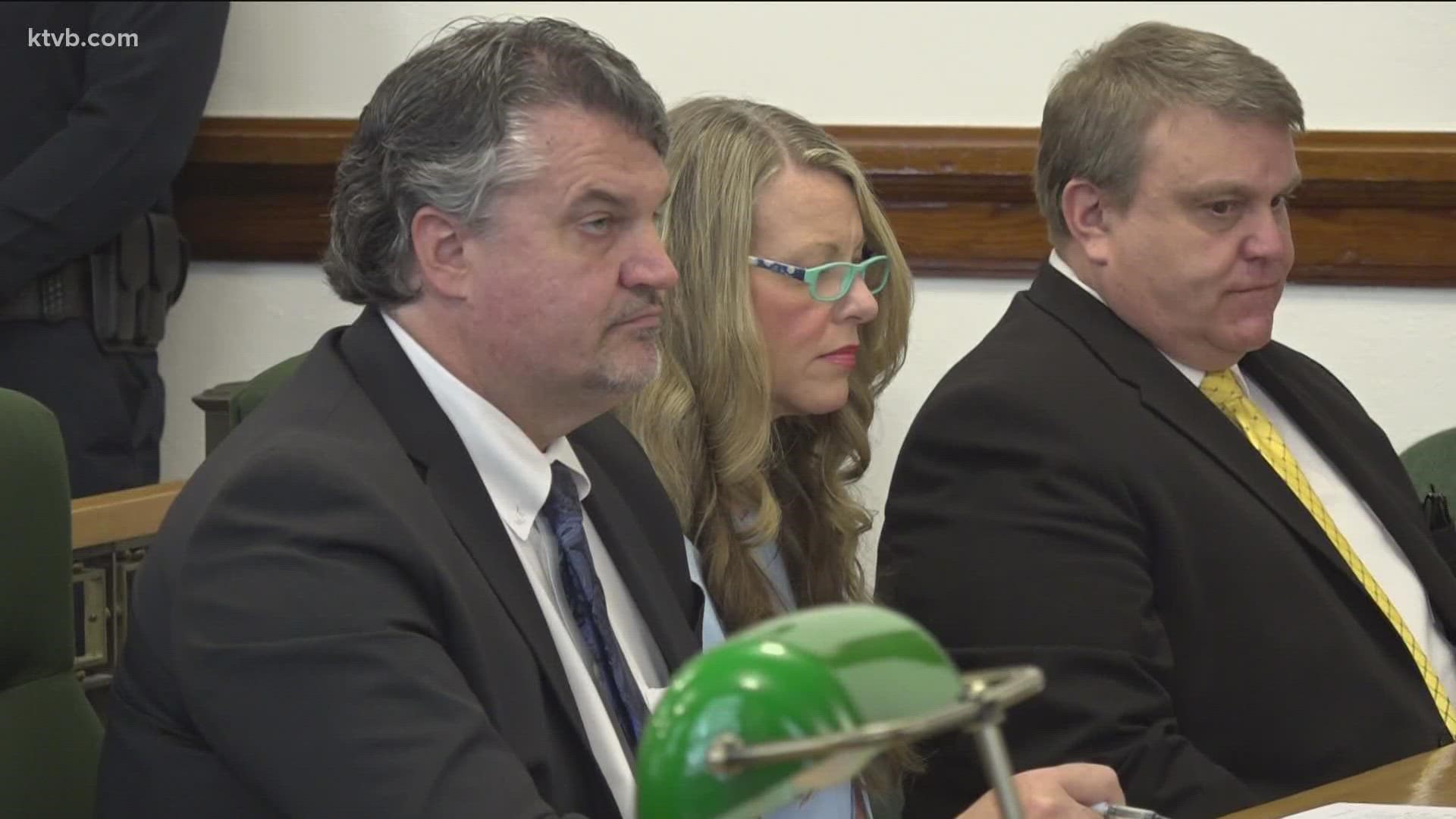FREMONT COUNTY, Idaho — The judge overseeing the case of Chad Daybell and Lori Vallow, the eastern Idaho couple charged with the murders of Vallow's children and Daybell's late wife, has ruled that the trial shall take place in Ada County, affirming an earlier decision.
Judge Steven Boyce on Thursday denied a motion in which prosecutors asked him to reconsider an earlier decision to have the trial located in Ada County with a jury comprised of Ada County residents, a decision that came after he ordered a change of venue requested by Daybell's defense.
Prosecutors requested that a jury from Ada County be transported to Fremont County, some 300 miles away from Boise, and sequestered there for the duration of the trial, which is expected to last 10 weeks. The state argued that the cost of transporting the jury would be substantially less than the cost of conducting the trial in Ada County with a jury sequestered in Ada County. As of Thursday, there is no order to have the jury sequestered during the trial. When a jury is sequestered, jurors are isolated from the public -- often in a hotel -- until after the trial is over.
In his decision, Judge Boyce wrote that "the Court determines that while it may be more economical to transport a jury to Fremont County, that is not a foregone conclusion given the additional possible scenarios related to sequestration."
Boyce noted estimates on the trial cost presented by the prosecution, based on different scenarios: more than $379,000 for a sequestered jury in Ada County, about $72,000 for a non-sequestered jury in Ada County, nearly $188,000 for a non-sequestered jury transported to Fremont County, and $187,840 plus additional supervision costs for a jury sequestered in Fremont County. Both the most expensive and least expensive scenarios are those in which the trial is conducted in Ada County.
Boyce also noted that many jurors raise concerns of hardships a lengthy trial would incur, such as not being able to spend time with their families, go to their jobs, or fulfill other daily obligations.
"Finding jurors that are able to serve for 10 straight weeks away from home will likely result in significant number of the fair cross section of the community being excluded from service. The Court is concerned that this may result in jury that does not represent fair cross section of the community, which would run in contravention to the Defendants’ paramount due process right to fair trial," Boyce writes. "On the other hand, if sequestration is not required and the jury is free to return home each day with admonishing instructions, the likelihood of securing jury representing fair cross section of the community is greatly increased. That scenario can only take place if the jury is not sequestered or isolated from their lives for an extensive time..."
Judge Boyce on Thursday also denied Daybell's motion to dismiss the indictment against him. He entered a one-page order into the public record. A longer Memorandum decision and order detailing the arguments on the motion to dismiss and the judge's reasoning in denying the motion is sealed due to requirements that grand jury proceedings -- including the identities of the grand jurors -- be kept confidential.
Prosecutors are seeking the death penalty against Daybell and Vallow. If the verdict is guilty, jurors will be required to stay on for the penalty phase.
The trial for Daybell and Vallow will be a joint one. However, Vallow's trial is currently set for Oct. 11, 2022, while Daybell's is still scheduled to begin Jan. 9, 2023.
After Vallow was declared competent to stand trial and transferred from a state mental health facility, Vallow was arraigned in district court on April 19. The judge set Vallow's trial for the October date because she had not waived her right to speedy trial under the Sixth Amendment to the U.S. Constitution.
Under Idaho's speedy trial law, Vallow's trial must begin within six months of her district court arraignment, which was in April, "unless good cause to the contrary is shown." The prosecution has filed a motion asking Judge Boyce to set Vallow's trial for January as well, in order to "prevent any attempt for an improper severance" of her case and Daybell's case. A hearing on that motion is set for May 19 at 10 a.m.
Watch more on the case of JJ Vallow and Tylee Ryan:
See all of the latest coverage in our YouTube playlist:

